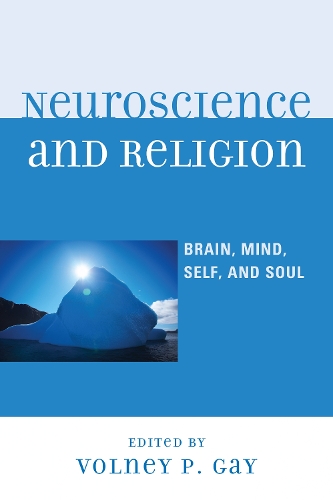
Neuroscience and Religion: Brain, Mind, Self, and Soul
(Paperback)
Publishing Details
Neuroscience and Religion: Brain, Mind, Self, and Soul
By (Author) Volney P. Gay
Contributions by Michael Bess
Contributions by Stephan Carlson
Contributions by Tom Gregor
Contributions by Gary Jensen
Contributions by Alicia Juarrero
Contributions by John McCarthy
Contributions by Jeff Schall
Contributions by Edward Slingerland
Bloomsbury Publishing PLC
Lexington Books
16th August 2009
United States
Classifications
Professional and Scholarly
Non Fiction
Religion and science
Impact of science and technology on society
616.89
Physical Properties
Paperback
300
Width 155mm, Height 231mm, Spine 18mm
479g
Description
For religious persons, the notion of human being is tied inextricably to the notion of God (or the gods) and turns on this question: what is human being How did we, with our almost infinite capacities for thought, change, and domination, come to be Imbued with powers far beyond any other animal, humans are too faulty to be considered gods themselves. Yet, the idea of God (or the gods) appears in all distinctive human cultures: it names the other pole of humanit designates a being who realizes perfectly our imperfectly realized nature.
With the rise of new sciences come ancient anxieties about how we should define human being. In the nineteenth century, electricity and magnetism fascinated experts and captivated the lay public. In the twenty-first century, advances in neuroscience open up vast new possibilities of mimicking, and perhaps emulating human being. In this book twelve scholars and scientists ask whatif anythingdistinguishes Brain from Mind, and Mind from Self and Soul.
Reviews
With the growth in cognitive and neuroscientific study of religion, important questions are beginning to arise. This unique multidisciplinary collection of essays flags numerous issues that scholars will have to tackle for the field to realize its full potential. -- Justin L. Barrett, University of Oxford
Contributors to this volume plunge headlong into the contested relationship between science and religion to question whether there is, in an age of materialistic neuroscience, any unique reality that constitutes the 'human.' Although their answers are diverse, ranging from attempts to justify 'soul' (and hence religion) to scientific reductions of notions of soul, there is much of interest to be found in their considerations. -- Luther H. Martin, University of Vermont
Author Bio
Volney Gay is professor and chair of religious studies, director of the Center for the Study of Religion and Culture, professor of psychiatry, and professor of anthropology at Vanderbilt University. He is also a faculty member of the St. Louis Psychoanalytic Institute.
